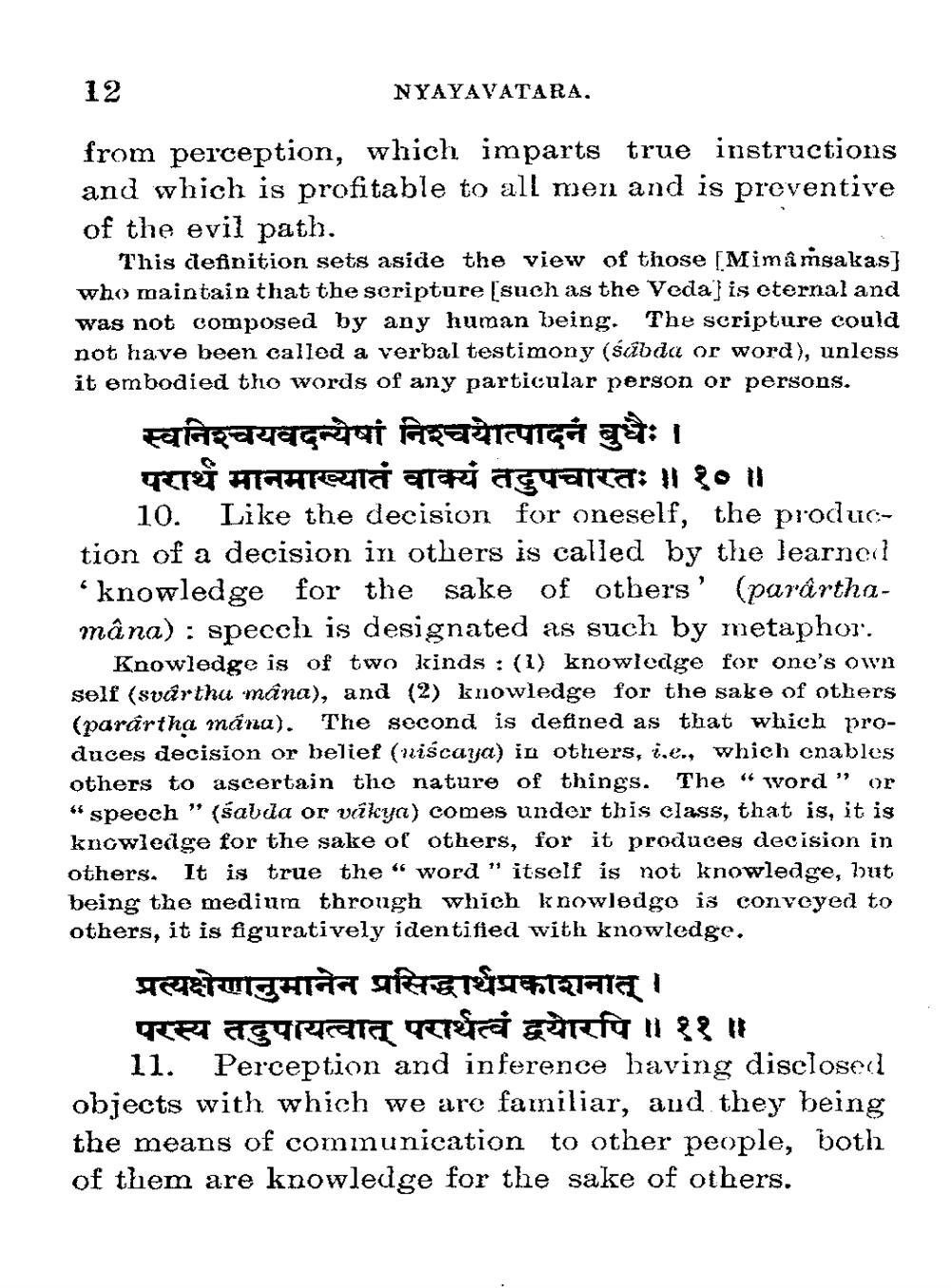________________
12
from perception, which imparts true instructions and which is profitable to all men and is preventive of the evil path.
NYAYAVATARA.
This definition sets aside the view of those [Mimâmsakas] who maintain that the scripture [such as the Veda] is eternal and was not composed by any human being. The scripture could not have been called a verbal testimony (śabda or word), unless it embodied the words of any particular person or persons.
स्वनिश्चयवदन्येषां निश्चयेात्पादनं बुधैः ।
परार्थं मानमाख्यातं वाक्यं तदुपचारतः ॥ १० ॥
10. Like the decision for oneself, the production of a decision in others is called by the learned 'knowledge for the sake of others' (parârthamâna): specch is designated as such by metaphor.
or
Knowledge is of two kinds : (1) knowledge for one's own self (svarthu mana), and (2) knowledge for the sake of others (parartha mána). The second is defined as that which produces decision or belief (niścaya) in others, i.e., which enables others to ascertain the nature of things. The "word " speech" (sabda or vakya) comes under this class, that is, it is knowledge for the sake of others, for it produces decision in others. It is true the "word itself is not knowledge, but being the medium through which knowledge is conveyed to others, it is figuratively identified with knowledge.
46
प्रत्यक्षेणानुमानेन प्रसिद्धार्थप्रकाशनात् ।
परस्य तदुपायत्वात् परार्थत्वं द्वयोरपि ॥ ११ ॥
11. Perception and inference having disclosed objects with which we are familiar, and they being the means of communication to other people, both of them are knowledge for the sake of others.




